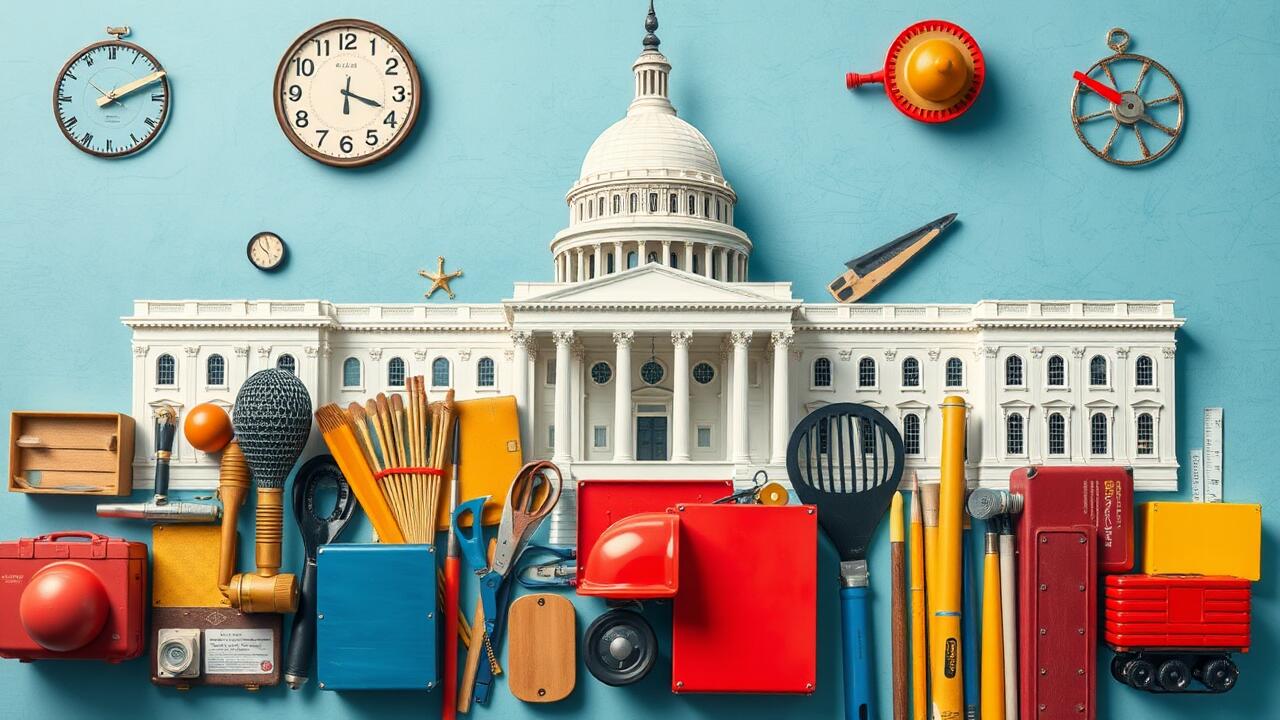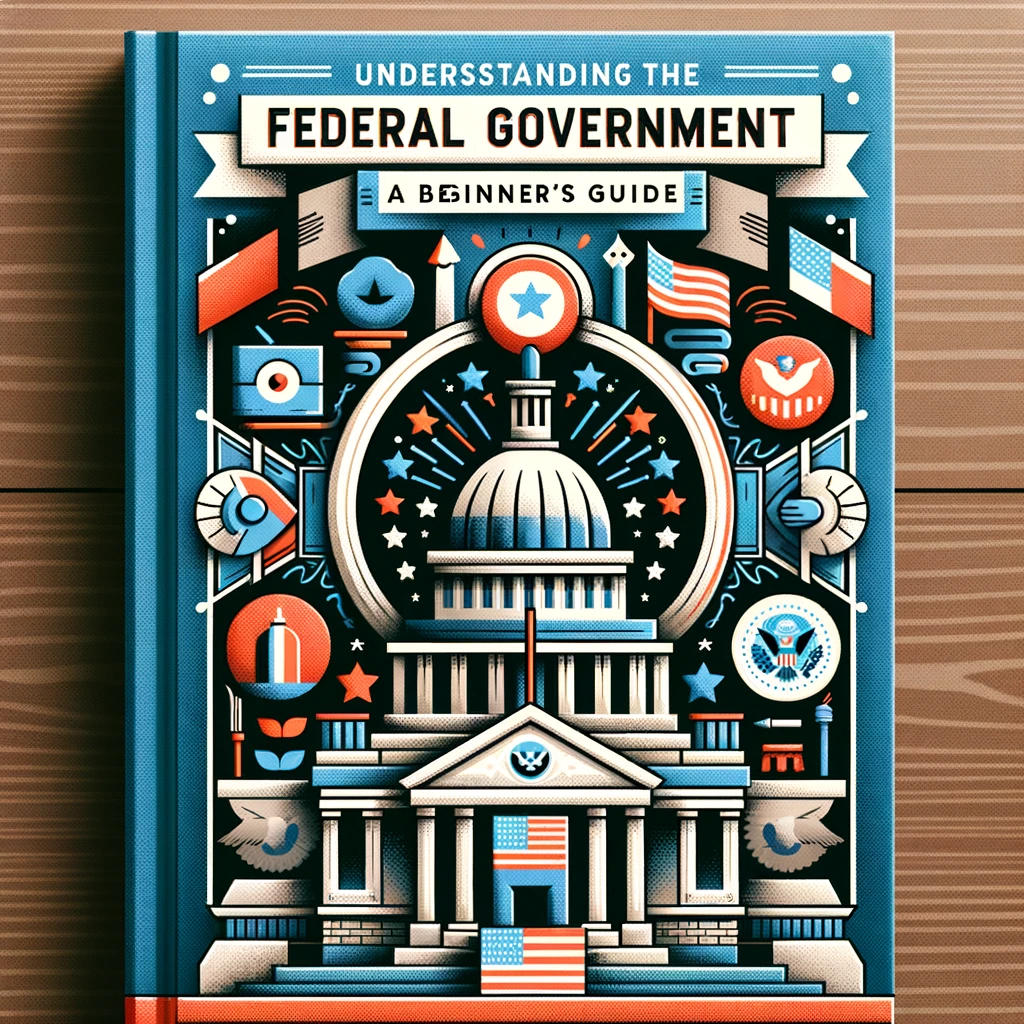Table Of Contents
The Future Of Federal Workforce Policies: Trends To Watch In 2024 | Exploring the Future of Federal Workforce Policies and Key Trends to Watch in 2024
Technological advancements and shifting societal expectations are key drivers in shaping the future of federal workforce policies. The Future of Federal Workforce Policies: Trends to Watch in 2024 will focus on enhancing workforce management systems to accommodate diverse and dynamic workforces. As federal agencies strive to align with the federal wage system, initiatives endorsed by organizations like the American Federation of Government Employees emphasize fair compensation for federal employees. Moreover, the need for efficient workforce planning is crucial as the federal civil service adapts to changing demands. Engaging government employees through meaningful policies will be essential in promoting federalism and ensuring a responsive workforce for the challenges ahead.
| Key Driver | Description | Impact on Workforce Policies |
|---|---|---|
| Technological Advancements | Integration of AI and automation in federal processes. | Enhanced efficiency and reduced administrative burden. |
| Diversity and Inclusion | Focus on accommodating a diverse workforce. | Creation of policies that support varied work styles and backgrounds. |
| Fair Compensation | Ensuring equitable pay and benefits for federal employees. | Increased employee satisfaction and retention rates. |
| Workforce Planning | Strategic management of human resources in response to changing demands. | Alignment of workforce capabilities with agency goals. |
The Future of Federal Workforce Policies: Trends to Watch in 2024 | Technology Advancements and Automation
Technology advancements and automation are set to play a significant role in shaping the future of federal workforce policies in 2024. The increasing reliance on technology is transforming how agencies operate within the bureaucracy and influencing the labor market’s dynamics. Data from the Bureau of Labor Statistics highlights a shift toward skill sets that merge digital literacy and automation competencies. As the US Office of Personnel Management aligns recruitment strategies with these trends, job fairs will increasingly emphasize candidates who can adapt to emerging technologies and their applications in public service.
Labor organizations are advocating for policies that ensure equitable access to training for federal employees in response to these technological changes. Agencies like the Federal Trade Commission and the Federal Communications Commission are collaborating to address how technology affects job roles and responsibilities. The Equal Employment Opportunity Commission is also focusing on how these advancements can be leveraged to promote diversity and inclusion in recruitment processes. Such collective efforts underline the significant changes anticipated in The Future of Federal Workforce Policies: Trends to Watch in 2024.
Diversity, Equity, Inclusion, and Accessibility Initiatives
As the federal government evolves, Diversity, Equity, Inclusion, and Accessibility (DEIA) initiatives are becoming central to The Future of Federal Workforce Policies: Trends to Watch in 2024. Public employees and government workers are increasingly advocating for an inclusive environment that reflects the diversity of the nation. With the guidance of the U.S. Office of Personnel Management and the Equal Employment Opportunity Commission (EEOC), agencies are focusing on strategies that promote equal employment opportunities. This shift aims to address labor shortages by creating a more welcoming and equitable workplace for all individuals.
The federal workforce is recognizing that a robust DEIA strategy not only enhances employee engagement but also improves overall productivity. By reshaping employment practices and revising the wage system, the federal government can attract a broader range of talent. These efforts align with the overarching goal to eliminate barriers and ensure that historically underrepresented groups have access to government positions. As we move into 2024, monitoring the progress of DEIA initiatives will be crucial for understanding their impact on the labor force and the effectiveness of federal workforce policies.
Evolving Work Environments and Employment Models
The transition toward remote work and hybrid models is reshaping the hiring process and redefining job security for employees in federal agencies. As outlined in The Future of Federal Workforce Policies: Trends to Watch in 2024, these evolving structures require the Office of Personnel Management to adjust regulations surrounding work hours and wage considerations. The Department of Homeland Security is already adopting flexible arrangements to foster a positive workplace culture, responding to insights from the Federal News Network regarding employee preferences. This shift toward adaptable work environments not only enhances overall job satisfaction but also aligns with broader trends aimed at retaining talent in a highly competitive landscape.
Remote Work and Hybrid Models
As the Future of Federal Workforce Policies: Trends to Watch in 2024 unfolds, remote work and hybrid models are reshaping how federal agencies operate. The General Services Administration is exploring new policies that accommodate flexible schedules while addressing challenges such as pay gaps and employee morale. Effective implementation of employee assistance programs is crucial to support staff in this evolving landscape. Agencies like the Department of Veterans Affairs are leveraging technology to enhance hiring processes and align budgets with the needs of a dispersed workforce.
This shift toward remote and hybrid environments necessitates a reevaluation of traditional bureaucratic structures. Agencies must develop innovative policies that prioritize employee engagement and satisfaction, while also maintaining productivity. Schedule F reforms have sparked conversations about how best to attract and retain talent in a competitive market. The Future of Federal Workforce Policies: Trends to Watch in 2024 will hinge on how agencies adapt to these changing dynamics and ensure a cohesive workplace culture, regardless of physical location.
- Increased emphasis on digital communication tools to enhance collaboration among remote teams
- Policies fostering work-life balance to improve employee well-being and performance
- Ongoing training and development opportunities to equip employees for hybrid work environments
- Greater focus on diversity and inclusion initiatives to support a varied workforce
- Assessment of remote work productivity metrics to ensure accountability and efficiency
- Flexibility in work hours to accommodate different lifestyles and personal commitments
- Continuous feedback loops to gauge employee satisfaction and adapt policies accordingly
Flexible Work Arrangements and Impact on Productivity
The shift towards flexible work arrangements is reshaping the landscape of the federal sector workforce. As federal workforce experts highlight, these arrangements can significantly enhance workplace productivity by accommodating diverse employee needs. With the future workforce paradigm emphasizing adaptability, organizations must align their policies with evolving federal workforce priorities. As the Future of Federal Workforce Policies: Trends to Watch in 2024 unfold, understanding the balance between flexibility and performance will be crucial for meeting federal workforce needs.
Adopting flexible work options not only fosters employee satisfaction but also drives engagement within the federal workplace. Studies indicate that employees who enjoy greater autonomy over their work arrangements tend to be more motivated and productive. This cultural shift aligns with the future of federal workforce policies: trends to watch in 2024, which advocate for innovative solutions to attract and retain talent. By prioritizing effective workforce policies that support flexible arrangements, agencies can position themselves to thrive in an increasingly dynamic environment.
Legislative Changes Impacting Federal Workforce Trends
The landscape of federal employment is poised for significant transformation as new legislative measures reshape how federal jobs and workforce support are structured. The Future of Federal Workforce Policies: Trends to Watch in 2024 highlights the need for policies that not only enhance federal job opportunities but also promote a positive federal workplace culture. Anticipated changes will likely address the unique needs of the existing workforce, ensuring that federal employees are equipped with the skills necessary for a modern workforce. As Congress reviews key policies and prepares for upcoming legislative actions, the focus will be on creating resilient federal job series that foster equity and inclusion, ultimately benefiting the overall federal employment ecosystem.

Key Policies Under Review
Key policies currently under review aim to enhance the federal hiring experience and address the evolving needs of the government workforce. As agencies strive to modernize their approaches, leveraging technology and aligning with The Future of Federal Workforce Policies: Trends to Watch in 2024 becomes essential. These policies will impact federal workers and help shape a responsive public workforce capable of meeting the challenges posed by a changing environment.
Evaluating policies from a federal employee viewpoint is crucial to ensuring that they align with the realities faced by federal government employees. As the federal bureaucracy faces pressures related to workforce needs, these reviews will guide strategic decisions that affect employee satisfaction and retention. Examining the implications of these policies will play a pivotal role in defining the federal work landscape and shaping The Future of Federal Workforce Policies: Trends to Watch in 2024.
Anticipated Legislative Actions for 2024
Legislative actions expected in 2024 will play a critical role in shaping the future of federal workforce policies. As the federal government continues to evaluate its hiring practices, new regulations may enhance flexibility within the civilian workforce. The focus will likely shift towards modernizing workforce systems, ensuring that federal policies accommodate diverse employment needs. These changes aim to support federal employees’ balance between work and personal life, ultimately striving for a more effective workforce drawn from a broader talent pool.
Workforce action planning will be a key element in upcoming legislation, emphasizing the importance of workforce insights gleaned from previous experiences. Anticipated changes may prioritize equity in hiring and retention strategies, reflecting the changing dynamics within federal employment. As stakeholders analyze best practices, aligning federal policies with workforce priority will be essential for fostering an adaptable and resilient workforce. The Future of Federal Workforce Policies: Trends to Watch in 2024 will largely be informed by these legislative developments as they seek to promote a sustainable federal workforce.
Skills Development and Training Opportunities
As the landscape of federal employment evolves, a significant focus on continuous learning emerges as a critical component of The Future of Federal Workforce Policies: Trends to Watch in 2024. Federal departments are prioritizing the development of their workforce through tailored training programs that align with the evolving needs of federal government workers. Recent workforce survey results indicate that federal office utilization rates hinge on employees’ skills and adaptability. These findings spotlight the importance of investing in the local workforce to cultivate a robust talent pool that meets the pma workforce priority. By fostering partnerships with educational institutions, federal offices can create pathways for ongoing professional growth, ensuring that federal workers are equipped to navigate the complexities of modern federal service.
Emphasis on Continuous Learning
As federal offices prepare for changes outlined in The Future of Federal Workforce Policies: Trends to Watch in 2024, a strong focus on continuous learning has emerged as a cross-agency workforce priority. This shift aims to enhance the skills of civilian employees, ensuring they remain adaptable and competitive in an evolving job market. Federal programs are being designed to integrate learning opportunities into daily work routines. Utilizing workforce dashboards allows agencies to track skill development and align training needs with organizational goals, ultimately strengthening the capabilities of at-will employees.
With federal spending increasingly allocated towards professional development, agencies are expected to foster a thriving workforce that meets the demands of modern governance. In this context, tailored training programs not only support the individual growth of federal agency employees but also enhance the overall efficiency of federal operations. The emphasis on crafting effective federal resumes and providing skill-based training will become essential in attracting top talent and retaining skilled employees in an increasingly competitive landscape.
- Focus on integrating learning opportunities into daily work routines.
- Utilize workforce dashboards for tracking skill development and training needs.
- Allocate federal spending towards professional development initiatives.
- Develop tailored training programs for individual employee growth.
- Enhance overall efficiency of federal operations through continuous learning.
- Prioritize crafting effective federal resumes for employee attraction and retention.
- Respond to the demands of modern governance with a skilled workforce.
Partnerships with Educational Institutions
Educational institutions are increasingly recognized as strategic workforce partners for federal agencies. As federal agencies navigate the challenges presented by diverse workforce demographics, collaborations with schools and universities become crucial. These partnerships can target many jobs that require specialized skills, helping to prepare prospective employees for government jobs in an evolving landscape. The Future of Federal Workforce Policies: Trends to Watch in 2024 emphasizes the need for educational alignment with workforce data to ensure training meets the demands of a multigenerational workforce.
Engaging with educational institutions can provide federal agencies with insights into emerging trends and skill gaps. By jointly developing programs and internships, they can attract a diverse workforce that reflects the community it serves. This approach can help fill critical roles in public employment, particularly as the federal workforce expands to meet changing needs. The Future of Federal Workforce Policies: Trends to Watch in 2024 highlights this strategy as vital for maintaining a competitive edge in recruitment and retention efforts.
The Role of Data and Analytics in Workforce Planning
Data and analytics are becoming essential components in shaping The Future of Federal Workforce Policies: Trends to Watch in 2024. In federal settings, the utility of performance metrics helps organizations identify strengths and weaknesses among current employees, allowing for targeted improvements in federal office space design and employee engagement strategies. As public sector employment evolves, integrating predictive analytics can guide the recruitment and retention of civilian employees while addressing the needs of contemporary job seekers. By focusing on long-term workforce stability, federal agencies can cultivate positive public service careers that not only benefit individual career employees but also enhance overall organizational efficiency and effectiveness. The transformation of federal office space and work environments reflects a commitment to leveraging these insights for strategic planning and employee satisfaction in the ever-changing landscape of public service.

Utilization of Employee Performance Metrics
As part of The Future of Federal Workforce Policies: Trends to Watch in 2024, the use of employee performance metrics is becoming increasingly crucial for workforce priority teams. These metrics help evaluate the effectiveness of government employees and identify areas for improvement. By analyzing performance data, the federal enterprise can create a more data-driven workforce decision-making process, ensuring that new employees are assessed accurately and positioned for success in their roles.
Job seekers are drawn to federal opportunities that prioritize transparency and fairness in talent management. Performance metrics play a vital role in the implementation of effective federal pay systems, providing equitable compensation based on actual performance rather than tenure alone. This shift not only enhances employee morale but also attracts top talent to the federal workforce, aligning with the goals outlined in The Future of Federal Workforce Policies: Trends to Watch in 2024.
Predictive Analytics for Future Workforce Needs
As agencies prepare for the evolving landscape of The Future of Federal Workforce Policies: Trends to Watch in 2024, the integration of predictive analytics becomes crucial. It allows for a deeper understanding of future job applications and the specific needs of public sector employees. By utilizing interactive workforce dashboards, long agencies can analyze trends and forecast shifts in the U.S. labor force. This data-driven approach helps decision-makers anticipate the requirements of various roles, including border patrol employees, ensuring that recruitment strategies are aligned with a competitive labor market.
Public sector employee retention relies heavily on anticipating workforce trends through data analysis. Predictive analytics can uncover insights about employee engagement and career progression, which are essential for federal unions aiming to enhance job satisfaction. Many employees now seek more than just traditional job benefits; they desire clarity about their career trajectories. By leveraging predictive analytics, agencies can create customized development programs and support systems tailored to their diverse workforce, thus fostering a more engaged and skilled federal workforce.
Strategies for Employee Retention and Engagement
Employee retention and engagement will play a crucial role in shaping the future of federal workforce policies as we move into 2024. Embracing a forward-thinking employer model is essential, especially as national tech advancements demand a resilient workforce capable of adapting to emerging challenges. Implementing flexible pay policies can attract at-will hires while ensuring career staff feels valued and motivated. Strategies that focus on enhancing labor relations will contribute to a more engaged environment, particularly for USPS employees who often face unique pressures in their roles. The Future of Federal Workforce Policies: Trends to Watch in 2024 will reflect the importance of prioritizing employee satisfaction and commitment through innovative initiatives tailored to the needs of a diversified labor force.
Enhancing Employee Benefits and Compensation
The competitive landscape for attracting and retaining qualified personnel in the federal government is shifting significantly. Numerous federal agencies are intensifying their focus on enhancing employee benefits and compensation to create a secure workforce. This strategy not only aims to improve the overall job satisfaction of current employees but also plays a crucial role in attracting job candidates who are considering civil service positions. With an emphasis on workplace selection, agencies are reevaluating their offerings to ensure they align with The Future of Federal Workforce Policies: Trends to Watch in 2024.
Efforts to streamline the recruitment process can significantly influence the time-to-hire for federal positions. By offering comprehensive benefits packages, federal agencies can effectively appeal to a broader pool of fws workers. A well-structured benefits program fosters increased employee engagement and retention, which is essential for maintaining a robust and capable workforce. As agencies adapt their compensation strategies, the outcome will be pivotal in shaping The Future of Federal Workforce Policies: Trends to Watch in 2024 and ensuring that federal offices remain competitive in the talent market.
Building a Positive Workplace Culture
Creating a positive workplace culture is crucial, especially in light of The Future of Federal Workforce Policies: Trends to Watch in 2024. Many workers seek environments where they feel valued and engaged. Federal employees, including local government employees, are more likely to remain with their agencies when they experience a supportive culture. This is particularly significant given the widespread labor shortages affecting certain wage areas. Incorporating a national employee resource can enhance communication and inclusivity among job applicants and current staff alike.
Emphasizing a positive workplace culture can also help attract and retain full-time workers. The federal communications commission and other agencies can benefit from multi-agency hiring initiatives that prioritize cultural fit alongside skills and qualifications. As competition for talent intensifies, fostering an environment that promotes collaboration, respect, and recognition will be essential. The Future of Federal Workforce Policies: Trends to Watch in 2024 indicates that agencies prioritizing such a culture are likely to see improved morale and productivity among their teams.
The Impact of Global Trends on Federal Workforce Policies
Global trends are reshaping how the federal government approaches workforce policies, particularly as it pertains to job recruiting and the adaptation to evolving employment landscapes. The Future of Federal Workforce Policies: Trends to Watch in 2024 highlights the increasing competition as public service employers strive to attract talent in an economy where many hires are being driven by technological advancements and changing worker expectations. With a significant focus on full-time job offerings and proposed regulations that influence the federal application process, the landscape for manual labor occupations looks to evolve. As different administrations bring distinct priorities, U.S. workers must navigate these changes, ensuring that federal workforce policies remain relevant and effective in meeting the needs of both employers and employees.
International Comparisons of Workforce Practices
The landscape of federal workforce policies is not only influenced by domestic factors but also by international practices. Certain agencies are observing common initiatives that employers abroad have implemented to enhance employee engagement and satisfaction. These comparisons can inform how personnel decisions are made across various departments, potentially leading to the adoption of innovative strategies that diverge from the traditional workplace model. The Future of Federal Workforce Policies: Trends to Watch in 2024 necessitates a broadened perspective that incorporates international standards and best practices.
As the new administration prepares to take a closer look at agency budgets and policy frameworks, the influence of global workforce trends becomes increasingly relevant. Agencies can learn from countries that have successfully integrated flexible work arrangements and diverse workforce strategies. These observations may shape how the future trump administration approaches workforce development. By utilizing these insights, federal institutions can create a more adaptable and resilient workforce that meets the evolving needs of employees in a competitive global economy.
| Country | Key Workforce Practice | Impact on Employee Satisfaction |
|---|---|---|
| Sweden | Six-Hour Workday | Increased productivity and job satisfaction |
| Netherlands | Flexible Work Schedules | Improved work-life balance |
| Germany | Strong Worker Representation | Higher trust between employees and management |
| Australia | Paid Parental Leave | Increased retention rates among parents |
| Singapore | Continuous Learning and Development | Enhanced career progression and employee engagement |
Adapting to Global Economic Conditions
The evolving global economic landscape significantly influences The Future of Federal Workforce Policies: Trends to Watch in 2024. Public employees and government workers face challenges such as labor shortages and shifting employment demands. The federal government must adapt its wage system and hiring processes to attract and retain talent amid competitive private sector opportunities. Agencies like the U.S. Office of Personnel Management will play a crucial role in implementing strategies that address these challenges, ensuring a robust labor force that meets the needs of a diverse population.
Economic conditions also necessitate a stronger focus on equal employment opportunities within the federal workforce. The Equal Employment Opportunity Commission (EEOC) is set to reassess policies to promote equity and inclusiveness. This requires the federal government to evaluate existing practices while considering the impact of global trends on local employment dynamics. As these shifts occur, understanding the intersection between economic changes and workforce policies will be vital in shaping a responsive and resilient federal employment landscape.
Conclusion
The Future of Federal Workforce Policies: Trends to Watch in 2024 highlights the critical shifts in workplace dynamics influenced by technological advancements, diversity initiatives, and evolving employment models. As organizations like the General Services Administration and the Department of Veterans Affairs explore innovative hiring practices, they must consider how budget constraints and pay gaps affect their ability to attract and retain top talent. Implementing robust employee assistance programs, enhancing Schedule F implementations, and maintaining a focus on equitable policies will be essential in cultivating a supportive bureaucratic environment. These trends will shape the federal workforce’s landscape, reflecting a commitment to fostering an inclusive and productive workplace for all employees.
FAQS
What are the common initiatives that employers might adopt to enhance federal hiring practices in the future?
To enhance federal hiring practices, employers will likely focus on common initiatives that prioritize a balanced workforce, streamline federal employment offers, and adapt to changing civilian employees’ work requirements. As the federal government competes for talent, these future initiatives may be influenced by subsequent administrations and evolving workforce—a. Efforts may also be directed at optimizing federal office space to foster collaboration among federal employees.
What are the potential impacts of Schedule F on federal government employment and how might this influence civilian employees’ work-life balance in 2024?
Schedule F may lead to significant changes in federal government employment by allowing greater flexibility in hiring and firing federal employees. This initiative could impact the work-life balance of civilian employees, especially in federal office spaces, as common initiatives employers adopt might shift to focus more on workforce efficiency and productivity rather than job security for federal employees.
How might the implementation of Schedule F affect the balance between federal employees’ work and life, particularly for civilian employees in 2024?
The implementation of Schedule F could significantly impact the federal employees’ balance between work and life, especially for civilian employees, by altering job security and work conditions within federal office space. As agencies adjust to these changes, employees may experience shifts in their work responsibilities and overall work-life dynamics.
How will the adoption of Schedule F potentially affect federal employees’ balance between work and personal life, especially for civilian employees in the upcoming year?
The implementation of Schedule F may significantly influence the federal employees’ balance by altering job security and work expectations. Civilian employees—work environments could shift, leading to changes in federal office space—what is considered standard. As a result, employees—work dynamics may change, making it essential for agencies to address these impacts on their workforce.
How could the upcoming changes in 2024 potentially impact the federal employees’ balance between work and personal life, focusing on the implications of Schedule F?
The implementation of Schedule F in 2024 could significantly influence the federal employees’ balance by altering job security and expectations, which may lead to an increased workload and stress among federal employees. This shift could challenge the delicate equilibrium between work responsibilities and personal life, necessitating adjustments in how federal employees manage their time and commitments.
How might federal policies in 2024 influence the balance that federal employees maintain between their professional responsibilities and personal lives, particularly in relation to Schedule F?
In 2024, federal policies, particularly those surrounding Schedule F, could significantly impact federal employees’ balance between their professional duties and personal affairs. The introduction or adjustment of Schedule F may lead to changes in job security and work flexibility, influencing how federal employees navigate their responsibilities and personal life balance.
How do experts predict that Schedule F will influence the federal employees’ balance between their work obligations and personal lives in 2024?
Experts believe that the implementation of Schedule F may significantly impact federal employees’ balance by introducing new flexibility in work arrangements. This could either enhance or challenge the federal employees’ balance between work responsibilities and personal lives, depending on how agencies choose to apply these changes.
How can the implementation of Schedule F influence the federal employees’ balance between work and personal life in 2024?
The implementation of Schedule F may lead to significant changes in employment structures, which could directly influence how federal employees balance their work and personal life in 2024. Specifically, Schedule F might create new dynamics in job security and workplace expectations, potentially requiring federal employees to adapt their work-life strategy accordingly.
How are federal agencies expected to adapt their policies in 2024 regarding schedule f?
In 2024, federal agencies are anticipated to adapt their policies significantly concerning schedule f. This adaptation may include re-evaluating employee roles and responsibilities to align with the changes brought about by schedule f. The goal will be to ensure a balance between operational efficiency and the well-being of federal employees as they navigate the new framework established by schedule f.







